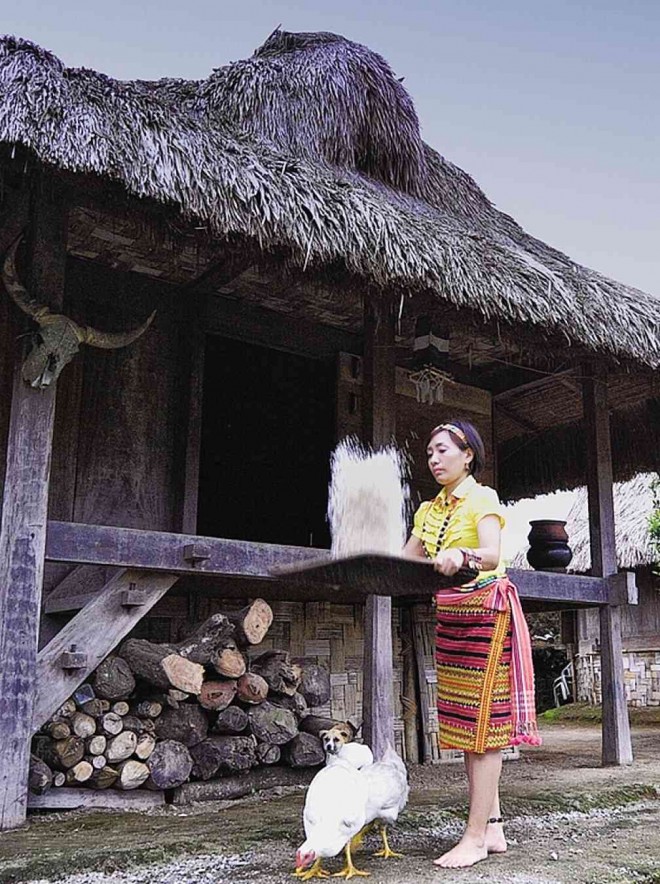
LIFE revolves around rice in many parts of the Philippines. Rice is grown even in the steepest areas of upland Cordillera.
EV ESPIRITU/INQUIRER NORTHERN LUZON
CABANATUAN CITY—Rice farmers in Nueva Ecija are alarmed as farm gate prices of palay continue to drop toward the peak of the harvest season later this month.
Serafin Santos, Nueva Ecija provincial agriculturist, said the selling price of palay is P14.50 a kilogram for manually harvested grains and P14 a kg for those harvested by machine.
Compared to two previous harvest seasons, he said, the current farm gate prices offered by traders and rice mill owners are lower by P3 to P4 a kg for fresh harvest. For dried palay, the farm gate price is P17.50 a kg, lower than the previous price of P23 to P25 a kg.
Rice farmers in the province likened their plight to onion farmers who, a month ago, decried the low prices of their produce. Farm gate prices of white onions were from P10 to P12 a kg, while red onions were sold at P7 to P9 a kg.
Nueva Ecija is one of the top producers of rice and onions. With more than 7,000 hectares of farmlands planted to onions, the province accounts for more than 60 percent of the total onion production in the country.
Santos said more than 160,000 ha were planted to rice in Nueva Ecija this cropping season. He said farmers usually expect at least 120 cavans (a cavan is equivalent to 50 kg) and as many as 250 cavans of harvest per hectare, particularly those who use
hybrid rice seeds.
He said farmers in about 10 percent areas planted to rice in Nueva Ecija have harvested their crops.
A rice trader in the Science City of Muñoz said new players in the palay trade caused the unusually high farm gate price during the last two harvest seasons.
“They speculated that we did not have enough supply of rice in the market because the government did not import big volumes of rice and that several volumes of smuggled rice were confiscated,” the trader said. “They raised the farm gate price so they can corner the local palay harvest,” he added.
The source said traders have stopped buying more palay because they still have enough stocks and the rice imported by the government has arrived.
On top of the low buying price, many farmers who planted hybrid rice seeds complained of the slow growth of their crops due to the cold weather experienced during the planting season.
They also complained of incurring additional expenses for fertilizers and other inputs for their crops to grow well. They urged agriculture officials to implement stricter measures in ensuring the quality of hybrid rice seeds being sold to them. Anselmo Roque, Inquirer Central Luzon